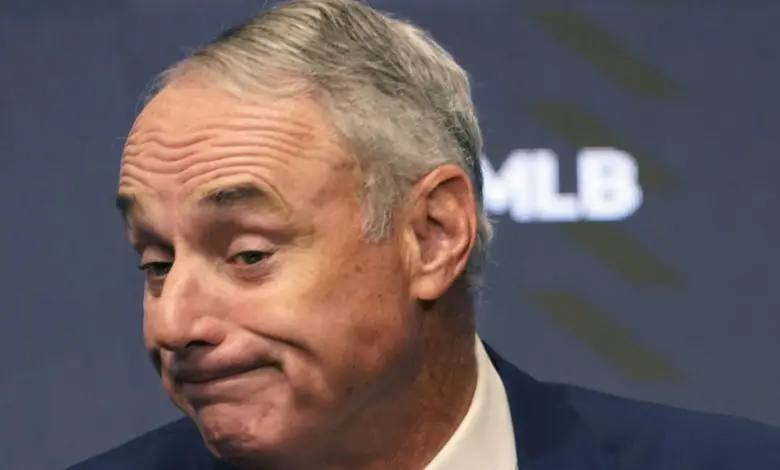
MLB Negotiations Could Take Place Daily as Deadline to Salvage Full Season Nears
The 15-minute meeting Thursday between representatives of Major League Baseball and the MLB Players Association yielded little other than frustration, though deadlines and ultimatums may yet get this thing done next week. As lofty as goal as that may be, the league has said an agreement will need to be reached by the end of February in order to salvage an on-time start to the regular season.
Spring training has already been delayed, costing millions of dollars to the municipalities that play host to the various team sites, but the owners don’t really feel that yet. Things will really get ugly if the regular season is postponed, then you’ve got the postseason to consider. That was one of the big hot-button topics Thursday, despite the fact that it wasn’t necessarily part of the main conversation.
There seems to be a bit of confusion about an agreement on expanded playoffs, either because Rob Manfred is simply trying to speak them into existence or because that agreement is still very malleable. Manfred stated last week that the two sides were aligned on the universal DH and eliminating draft pick compensation for signing free agents, then he went on to add that expanded playoffs have been agreed to.
Or have they?
Following a tweet from Craig Carton of WFAN laying out the details of a playoff format that would feature seven teams from each league, MLBPA Communications Director Chris Dahl summarily shot the notion down. Now, it’s possible both Manfred and Dahl are correct here. There could be an agreement in principle on having more teams in the postseason, just that the structure hasn’t been determined.
This tweet is inaccurate. There is no such agreement. https://t.co/cByKa7MCmO
— Chris Dahl (@Chris_Dahl) February 17, 2022
But according to Ben Nicholson-Smith of Sportsnet, even that basic agreement could be in jeopardy if the regular season is impacted by the work stoppage. The union has reportedly told the league not to bank on the big payday of a bigger postseason if players aren’t able to receive their full compensation for a full season. Makes sense.
Last thing: Heard MLBPA has told MLB not to expect expanded playoffs in 2022 if players miss the chance to play a full 162 and be compensated for the full season.
— Ben Nicholson-Smith (@bnicholsonsmith) February 18, 2022
That threat hits owners right in the wallet, which is the best possible way to get them back to the table more frequently and for longer periods of time. To wit, Jeff Passan noted that the two sides are planning to hold multiple sessions next week and could even meet every day starting Monday. Imagine if that had been the case back in December.
Instead, the league waited just over six weeks to make the first move and there have been only six meetings total since the lockout was implemented on December 2. And keep in mind that the owners knew well in advance that a lockout was coming, so the delay in negotiations was clearly orchestrated to get players sweating.
Now that they’ve clearly moved past the point of breaking the union prior to spring training, MLB might actually be willing to bargain in good faith for the first time. Nicholson-Smith tweeted that the league has indicated a willingness to bend on its positions regarding the competitive balance tax and paying younger players more, the two biggest hurdles remaining.
Whether and how much owners are truly willing to move is still very much in question, though, as they’ve so far been continuing their practice of shifting numbers around to make essentially the same offer look different each time. Despite what you’ll hear from several national talking heads, the league has yet to meaningfully change much and still needs to make an offer that can be considered legitimate in order to get this thing moving forward.
Let’s just say they proposed a $650,000 minimum salary that increases each year, a $50 million bonus pool, the same CBT penalties, and a $220 million threshold that increases by $4 million each year. Might that get it done? If not, it’d be pretty damn close and would at least be worthy of discussion. Let’s hope that’s what happens next week so we can start thinking realistically about baseball being back.
